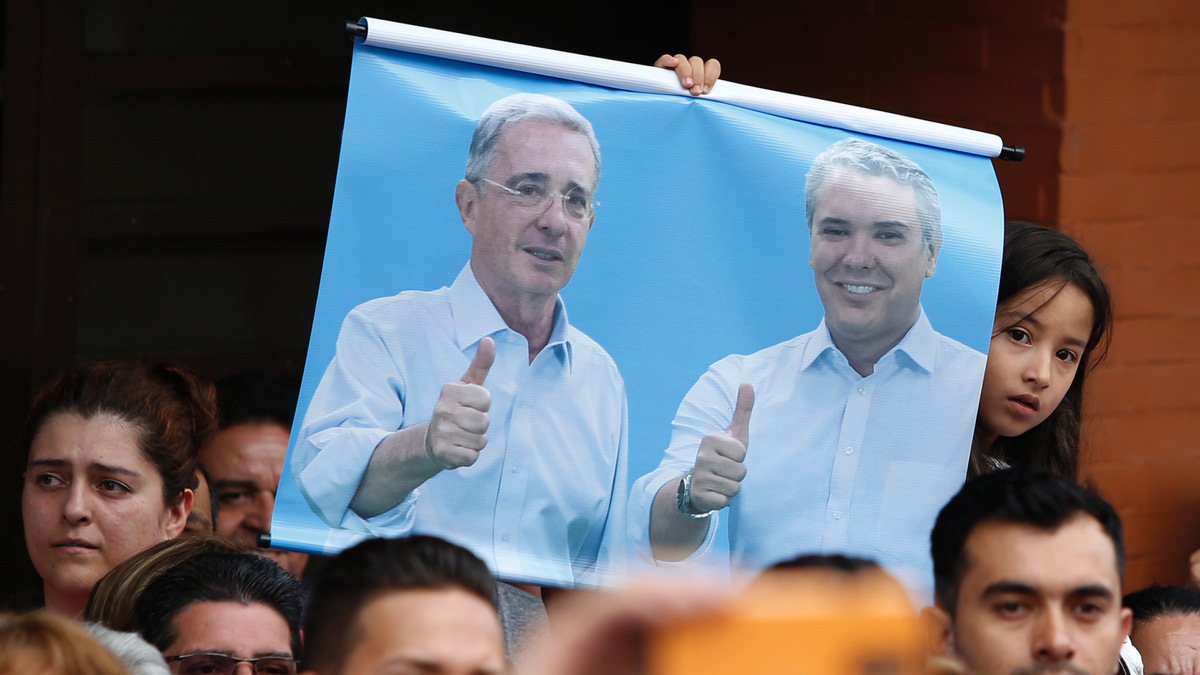
BOGOTA, Colombia – A former guerrilla fighter will compete against a conservative protege of a powerful ex-president for Colombia's top office on Sunday, as the country holds a crucial presidential election. Gustavo Petro and Ivan Duque are at opposite ends of the ideological spectrum and have different views on almost every major issue facing the country. Here are the candidates' bios:
IVAN DUQUE
Duque held a job in Washington at the Inter-American Development Bank, where he was in charge of cultural affairs. But that changed in 2013, when former President Alvaro Uribe asked him to run for Colombia's senate on behalf of his conservative party, the Democratic Center. After making a name for himself in Colombian politics, the 41-year-old lawyer clinched his party's presidential nomination.
Duque is running on a pro-business platform that includes promises to reduce corporate taxes and create incentives for oil and mining companies to invest in Colombia. He's also promised to make changes to the 2016 peace deal with the FARC, including a legal reform that would bar guerrilla leaders who have committed war crimes from participating in politics until they provide reparation to victims. He has also proposed tackling Colombia's growing cocaine production by restoring the aerial fumigation of coca crops, a move backed by the U.S. government.
Critics of Duque fear that his presidency would be heavily influenced by his mentor, Uribe. The ex-president is one of Colombia's most popular politicians and is known for having delivered hard blows to the FARC rebels that forced them to negotiate a peace deal. But Uribe's two terms in office were also marred by human rights abuses and efforts to subdue the independence of Colombia's congress and its courts. Duque has said that while he may ask Uribe for advice, he will be making decisions on his own.
GUSTAVO PETRO
In his youth, Petro was a member of an urban guerrilla group known as the M-19, and spent a couple years in jail on weapons possession charges. The group made peace with Colombia's government in 1990, and since then Petro has been elected to congress several times and also served as mayor of Bogota.
As a senator, Petro became famous for leading successful investigations into politicians with ties to right-wing paramilitaries. He is now proposing to promote agriculture by purchasing unproductive plots of land and redistributing them to the landless. He's also promised to increase corporate taxes. Petro has said he will not make any changes to the peace deal.
Throughout the campaign Petro has been hammered with criticism over his support for Venezuela's socialist government. He hosted Hugo Chavez on a 1990s tour of Colombia, and called him "a great leader" after his death. He also backed a special election held last year by President Nicolas Maduro that critics described as an illegal effort to supplant the opposition-dominated National Assembly.
Petro's critics fear that if he wins the election he will turn Colombia into "another Venezuela." The leftist candidate distanced himself from Venezuela's government during the final months of the campaign and called Maduro a "dictator."
